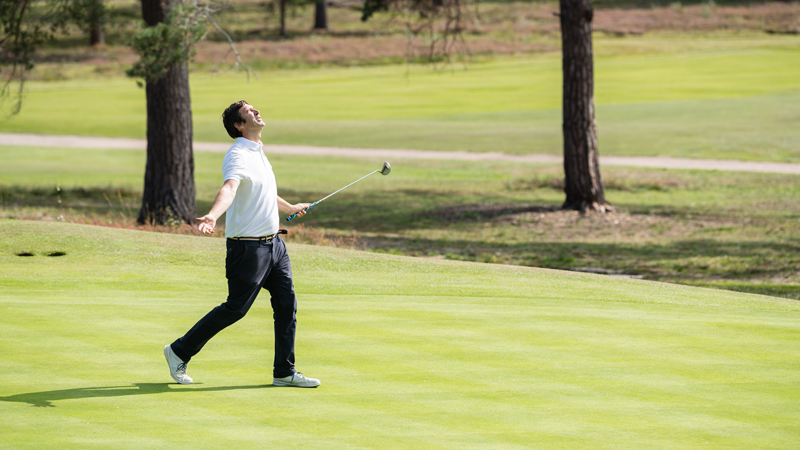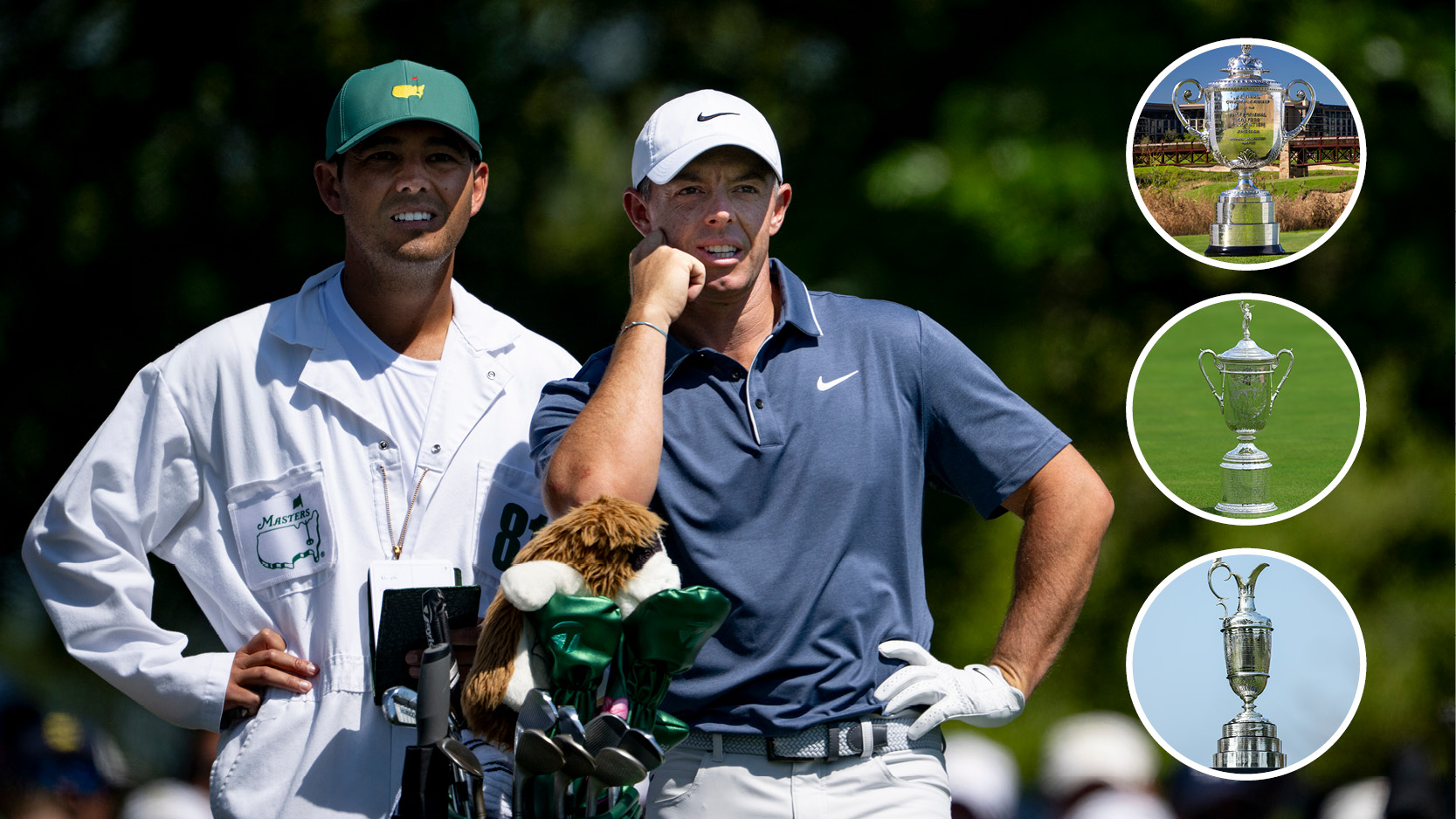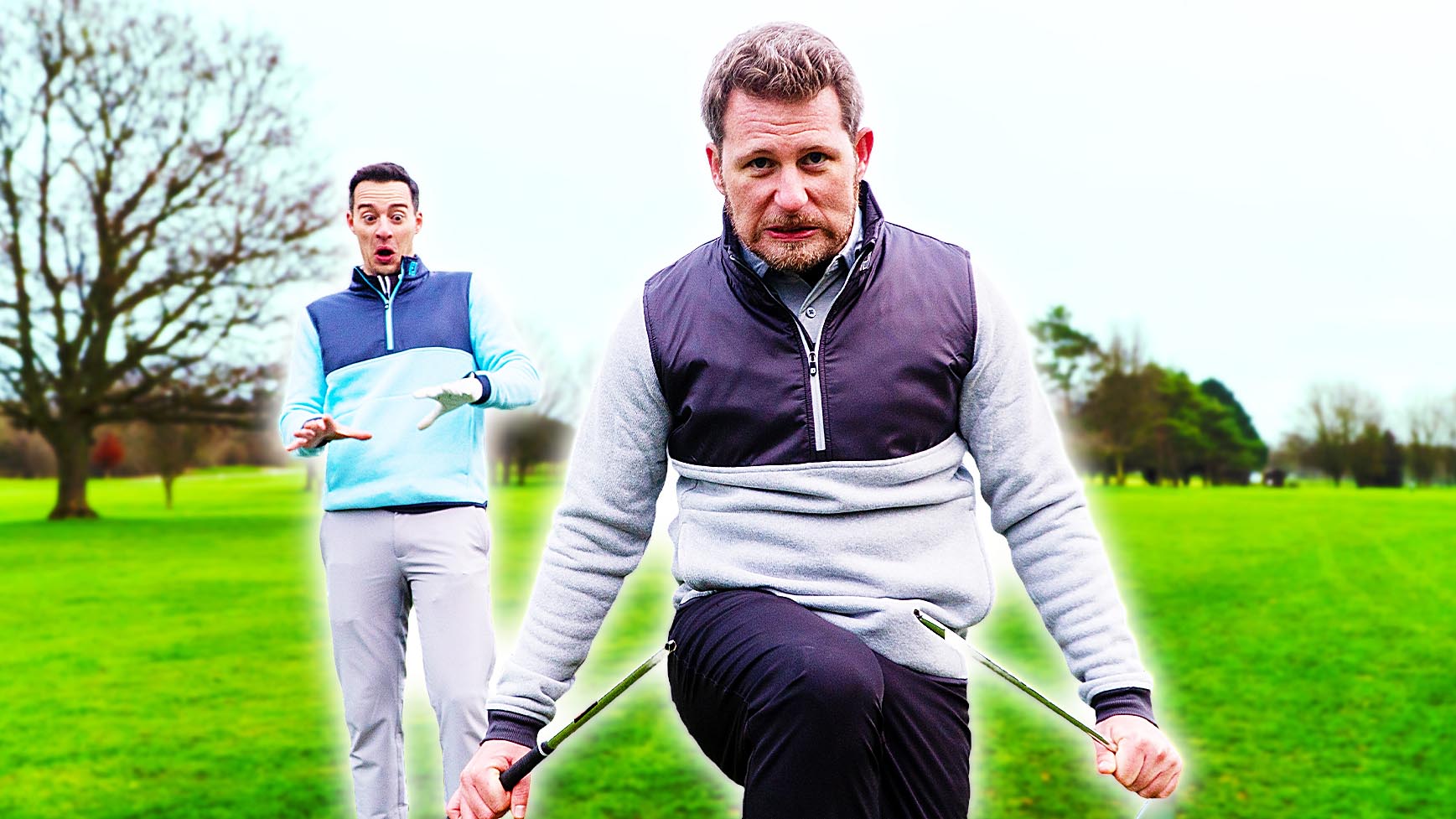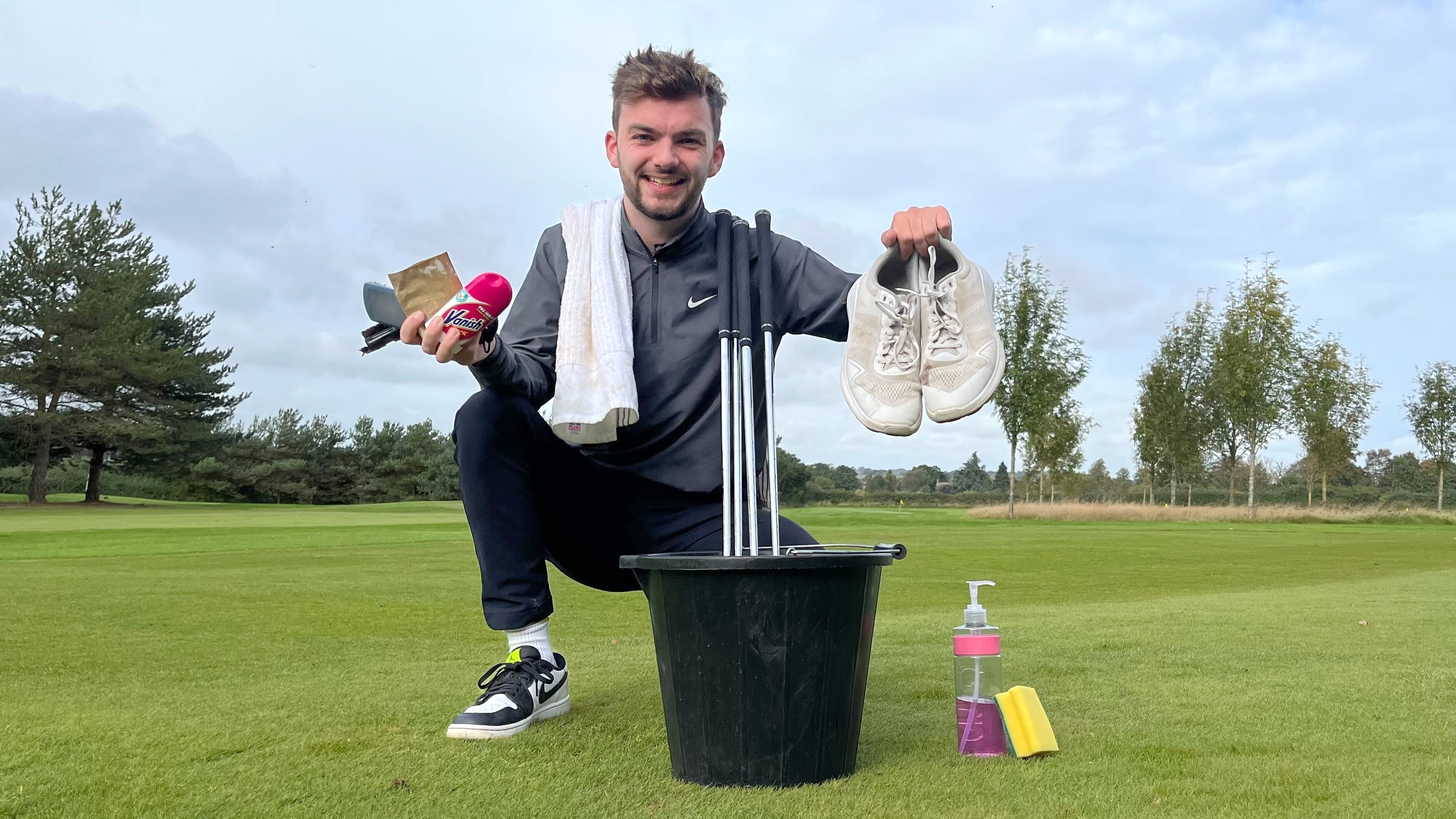Why Is Golf So Addictive?
Fergus Bisset talks to performance coach Karl Morris to find out


Why is golf so addictive? Fergus Bisset spoke with performance coach Karl Morris to consider the reasons we keep coming back for more.
Why Is Golf So Addictive?
After suffering a round full of golfing traumas and travails that would cause any sane person to lock the clubs away in a dark and distant cupboard, you reach the 18th and skelp a belting drive right down the centre of the fairway.
A tremendous shot bearing no resemblance to what has come before elicits the most joyous feelings… “Haste ye back,” as the Scots say.
And you will haste back, full of hope, expectation and excitement.
No matter how many stones this wicked game throws at us, we keep returning for more. Why? Why is golf so addictive?
I spoke to leading performance coach, Karl Morris of The Mind Factor to get some answers.
Get the Golf Monthly Newsletter
Subscribe to the Golf Monthly newsletter to stay up to date with all the latest tour news, equipment news, reviews, head-to-heads and buyer’s guides from our team of experienced experts.
“When you consider addictions in general, it’s because of emotion. A gambler becomes addicted to the intense rush when they have a win and they seek out that feeling,” he says.
“When we first started playing golf, we hit that shot that soared into the air and we experienced the adrenaline surge and dopamine hit that accompanied it. The search for that feeling never goes away.”
But, as with other addictions, it’s not simply the rush that’s compulsive, it’s the range of emotions that many of us seek out habitually.
“When people become addicted, it’s almost an addiction to the highs and lows,” says Morris. “Golf can give us so much one moment and then take it away the next.”
It’s not only the highs and lows and the energy boost delivered by good shots, putts or performances that make golf addictive. Other factors are at play.
Chasing the dragon
One of the most compelling things about golf is the quest for the unattainable – the knowledge that more is always possible.
As amateurs, we tend to leave a number of shots on the course each round through silly mistakes that we’re certain we’ll be able to avoid next time out.
Even the very best in the world will never play a round that couldn’t have been fractionally better.
Some have come pretty close, but absolute perfection in golf is a holy grail that will never be found.
“I like what Fred Shoemaker said that you fall in love with the idea of trying to master a game that you know you’ll never master,” says Karl Morris. “That’s a positive way of framing the addictive nature of golf.”
Perseverance, determination, self-belief, positivity – these are good and strong attitudes that golf’s quest for the unattainable draws out of us.
Shiny new things
Most of us are materialistic to some level and the compulsion to acquire new toys is pretty strong. Golf provides plenty of options in this direction.
Whether the latest driver, a gleaming set of blades, the newest model of premium golf ball – most golfers become slightly addicted to kit.
And there’s more to it. The part of us that is addicted to “chasing the dragon” also sees potential in advancing technologies.
Manufacturers are constantly researching and developing to produce equipment that might help players improve and reach new levels.
“If new golf equipment technology sounds scientific and revolutionary, the intellect is drawn in,” says Karl Morris.
“Science is persuasive, and our intellect recognises the facts that underpin it. With research and testing behind it, demonstrating a new revelation of how it might help your game, that piece of equipment becomes compelling.”
And the science of technique
Likewise, following advances in golfing technique can be compulsive.
By reading the instruction section in Golf Monthly, or watching lessons on TV, we see tips or tweaks we believe could help us to improve in our quest for the unattainable, as described above.
Many of these technique tweaks will work for us and that drives us to find the next alteration that could help us move forward – Even the top pros can’t stop tinkering to get that little bit better.
“We fear bad shots, we fear playing badly and when somebody, a manufacturer or an instructor, comes along and says, ‘you’re never going to miss a tee shot again,’ or ‘never miss a putt again,’ that quells the fear for a period of time,” says Karl Morris.
“And, if a certain learned technique can protect you from bad shots, the fear response will be dulled. The promise of improved technique and advancing equipment wires directly into our innermost fears about playing badly.”
Repetition
Golf has repetition throughout. Striking shots at the driving range can be calming. Walking the golf course at a constant pace has a soothing effect.
Simply the process of going to the golf club, assembling equipment, teeing off at a set time and completing 18 holes is repetitive and can be comforting.
As we seek ways to assuage anxiety, the repetitive nature of golf makes it addictive.
“Anything repetitive tends to calm us down,” says Morris. “People who meditate focus on repetitive breathing, runners talk about the runners’ high – Doing the same thing over and over again has a calming effect on the human mind.”
The need for social interaction
To varying degrees, we are all addicted to social interaction and golf provides a concentrated hit of it.
Four hours with the company of up to three others while playing, plus with those you might meet in and around the course and clubhouse is extremely good for your mental wellbeing.
“We are social creatures. Evolution has been all about groups and that is how we have survived through the millennia. During the pandemic, when that was taken away from us, we all suffered,” says Morris.
“I could see it, when I did video calls for golf clubs – the joy on people’s faces to see pals again on the call who they hadn’t seen for a few months. They wanted that social interaction.”
Golf is pretty addictive then.
Fortunately, it’s not the most destructive addiction out there, although divorce lawyers around the world could probably cite some cases that would demonstrate otherwise… But generally, it’s a healthy way to satisfy the addictive side of our personalities.
“Yes, addictions to things like golf, fitness or other sports, in reasonable proportions, can be really quite positive,” Morris says.
Keep chasing the dragon then and look for the next tip that might just make all the difference, bash some more balls and buy a new driver.
Above all though, enjoy the game with friends and family and realise how lucky you are to be a golfer.

Fergus is Golf Monthly's resident expert on the history of the game and has written extensively on that subject. He has also worked with Golf Monthly to produce a podcast series. Called 18 Majors: The Golf History Show it offers new and in-depth perspectives on some of the most important moments in golf's long history. You can find all the details about it here.
He is a golf obsessive and 1-handicapper. Growing up in the North East of Scotland, golf runs through his veins and his passion for the sport was bolstered during his time at St Andrews university studying history. He went on to earn a post graduate diploma from the London School of Journalism. Fergus has worked for Golf Monthly since 2004 and has written two books on the game; "Great Golf Debates" together with Jezz Ellwood of Golf Monthly and the history section of "The Ultimate Golf Book" together with Neil Tappin , also of Golf Monthly.
Fergus once shanked a ball from just over Granny Clark's Wynd on the 18th of the Old Course that struck the St Andrews Golf Club and rebounded into the Valley of Sin, from where he saved par. Who says there's no golfing god?
-
 How Many Majors Will Masters Champion Rory McIlroy Win In His Career... And Which Is Next?
How Many Majors Will Masters Champion Rory McIlroy Win In His Career... And Which Is Next?Rory McIlroy completed the Career Grand Slam in dramatic fashion at The Masters, but how many Majors could he go on to win in his career (and which comes next)?
By Barry Plummer Published
-
 'You Can't Win Them All If You Don't Win The First' - McIlroy Grand Slam Odds Shorten After Masters Victory
'You Can't Win Them All If You Don't Win The First' - McIlroy Grand Slam Odds Shorten After Masters VictoryMcIlroy completed the Career Grand Slam after winning The Masters, with his odds of claiming the Grand Slam in 2025 slashed after his Green Jacket victory
By Matt Cradock Published
-
 7 Most Annoying Golf Playing Partners
7 Most Annoying Golf Playing PartnersWe showcase the seven most annoying playing partners that golfers can have the misfortune of teeing it up with!
By Sam Tremlett Published
-
 How To Clean Golf Clubs And Grips
How To Clean Golf Clubs And GripsIf you want to know how to clean golf clubs and grips, check out this step-by-step guide
By Sam Tremlett Published
-
 In Praise Of Golfing In Winter
In Praise Of Golfing In WinterFergus Bisset on why he enjoys playing golf through the winter months
By Fergus Bisset Published
-
 'Why Do Golfers Only Wear One Glove?' You Asked Google And We've Got The Answer...
'Why Do Golfers Only Wear One Glove?' You Asked Google And We've Got The Answer...You asked Google and we've got the answer...
By Roderick Easdale Published
-
 How To Regrip Golf Clubs
How To Regrip Golf ClubsKnowing how to regrip golf clubs means you can afford to replace them as and when they need replacing
By Joe Ferguson Published
-
 The 7 Scariest Shots in Golf
The 7 Scariest Shots in GolfWith Halloween creeping up, we have selected the 7 scariest shots in golf
By Neil Tappin Published
-
 17 Ways To Tell You're Obsessed With Golf
17 Ways To Tell You're Obsessed With GolfThe tell-tale signs that you are a true golf fanatic
By Roderick Easdale Published
-
 10 Of The Best Arnold Palmer Quotes
10 Of The Best Arnold Palmer QuotesHere we take a look at 10 of our favourite Arnold Palmer quotes
By Roderick Easdale Published